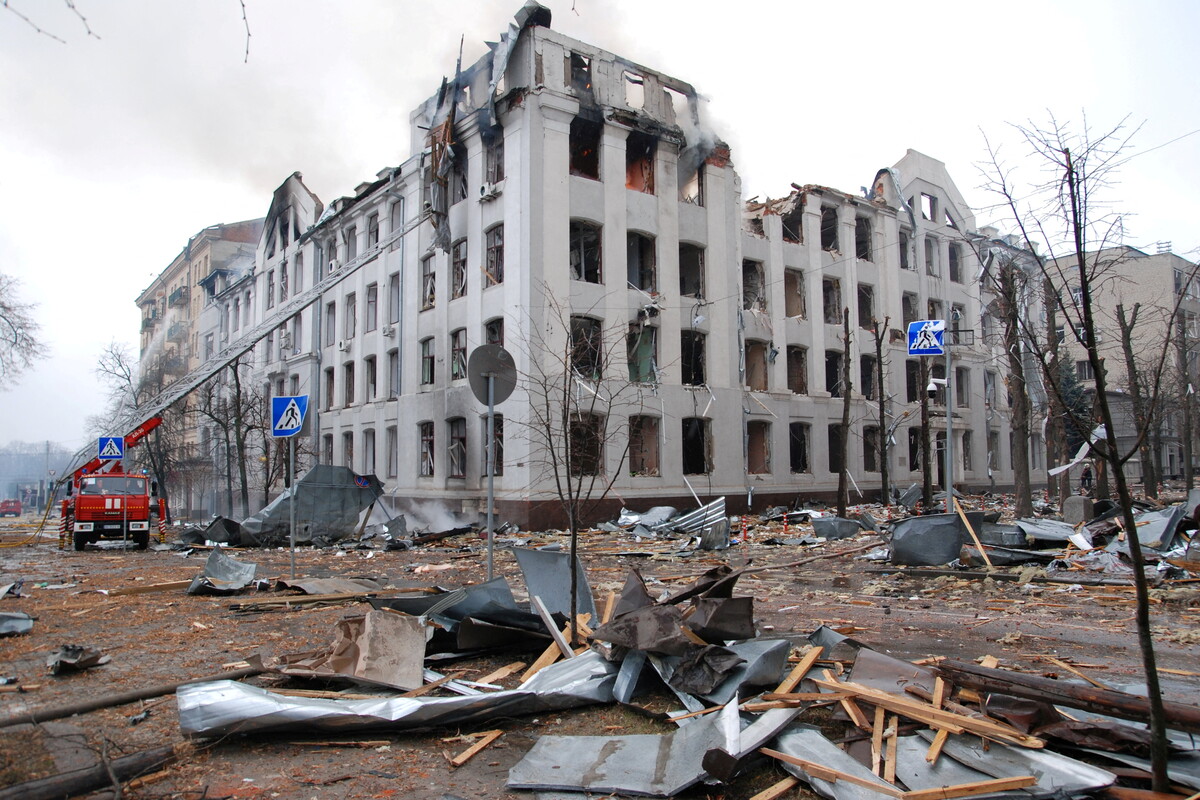
- Home
- >
- what we do
- >
- caras f...
Cara’s Fellowship Programme
Cara is ready to help academics from any country in the world, on any continent, who are being forced to flee by the risk of imminent imprisonment, injury or death, and works with them to find them temporary refuge in universities and research institutions until they can one day return home to help re-build better, safer societies.

Firefighters work to extinguish a fire at the Kharkiv National University building, which city officials said was damaged by recent shelling, in Kharkiv, Ukraine March 2, 2022. REUTERS/Oleksandr Lapshyn - RC29US9B4Q8N
In 1933, our founders described their mission as ‘the relief of suffering and the defence of learning and science'. Over ninety years later, that mission continues.
Our Fellowship Programme has been developed in partnership with a Network of 135 universities and research institutes, who provide financial support for Cara and fee waivers and other support for our Cara Fellows. Fellowships help academics in danger to escape to a safe place where they can continue their work. Most intend to return home when they can; but they need support in the meantime to maintain and develop the skills and to build the networks that they will need when that day comes. Some Cara Fellows need to get postgraduate qualifications such as a PhD to continue their careers; others already hold doctorates and are looking for a postdoctoral placement to carry out research, possibly with the goal of moving later into a full-time teaching or research post. We check each applicant's background, qualifications and references; encourage them to identify potential supervisors/host institutions, most often in the UK but sometimes elsewhere; help to negotiate the placement; allocate any additional funding needed from our own resources; and help with the visa process and other practical arrangements, for them and for any family members accompanying them.
Recently, our work has been dominated by the tragic events in Afghanistan, Ukraine and Sudan, and since late 2023 by the crisis in Gaza. As a result, the number of ‘Active Fellows’ – those actually in placements, mostly in the UK, hosted by members of our University and Research Network – has surged, reaching over 220 in each of 2023 and 2024 as a whole. And many more are on the way; at any given time our 'Enquiries' and ‘New Fellows’ teams are sifting and assessing up to 90 new applications and working with another 80 or so Fellows at the next stage, agreeing the details of their placements – a complex and time-consuming task, followed by the whole process of actually getting them, and in many cases their families as well, to safety. Our 'Active Fellows' team then takes over, working with the host universities to monitor each individual's progress and, as time moves on, discussing with each Fellow the various options they will have if a safe return home is still not possible as the end of their placement approaches.
In the immediate aftermath of Russia’s invasion of Ukraine, we also helped to develop and launch the British Academy-led ‘Researchers at Risk’ programme, which awarded 180 Fellowships, almost all initially for two years, to Ukraine-based researchers across the physical and biological sciences, medical sciences, engineering, humanities, social sciences and the arts. Almost all the 'Researchers at Risk' Fellows have recently taken up the offer of a third year, and Cara manages all the payments to the grantees.
Cara is the leading organisation of its type based in Europe, and unique in its focus on helping those who are still in immediate danger, rather than already in exile, and in providing 2- or 3-year awards as standard.
“The mission of Universities is the promotion of critical thought, both in our research and in our teaching. We don’t tell people what to think, we seek to show people how to think. As a consequence, the repression of academics is often amongst the first moves of those groups and regimes that seek to impose conformity and exclude criticism. In many parts of the world today, academics are under attack for doing their jobs, for what they have said, for who they are or simply because of where they are. In defending these colleagues at risk, then, we are defending the very idea of a University”.
Professor Stephen Reicher, St Andrews University – Grandson of a Cara Fellow from 1934
